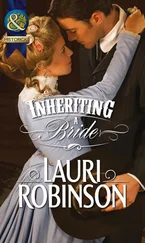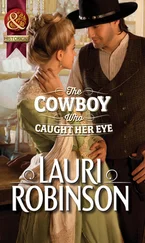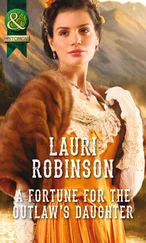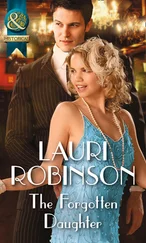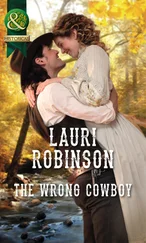Meg shook her head. “But I’ve been thinking about that. There are plenty of towns along the way. I say wherever we are come October, we find a town and spend the winter. It would be good if we made it as far as Fort Hall, but there are other places. Having pooled our supplies, we have more than enough to see us through and come spring, we can head out again.”
Betty and Tillie readily agreed. Meg had become their wagon master, and they all trusted her judgment. None of them had anyone waiting at the other end, and whether they arrived this year or next made no difference.
To them. To Lorna it did. She needed to arrive in San Francisco as soon as possible. That was why she was on this trip, but she hadn’t told anyone else that. Not her reasons for going to California nor what she would do once she arrived and found Elliot Chadwick. That was the first thing she’d do. Right after getting rid of the nun’s habit. However, she also wanted to arrive in California alive. Others on their original train had told terrifying stories about being caught up in the mountains come winter, and claimed they couldn’t wait for Tillie to get the doctoring she’d needed.
Meg’s plan of wintering in a small town, although it made sense, wasn’t what Lorna wanted to hear. She didn’t want to pass the winter in any of the towns between here and California. The few they’d come across since leaving Missouri were not what she’d call towns. Then again, having lived in London most of her life, few cities in America were what she’d been used to, not even New York, despite having been born there.
“Lorna, you haven’t said anything,” Meg pointed out. “Do you agree?”
Meg might have become their wagon master, but for some unknown reason, they all acted as if Lorna was the leader of their small troupe. “Yes,” Lorna answered, figuring she’d hold her real opinion until there was something she could do about it. “Wherever we are come October, that’s where we stay.” She turned to Tillie. “And no more talk of being sorry. We are all here by choice.” Holding one hand out, palm down, she asked, “Right?”
One by one they slapped their hands atop hers. “Right!” Together they all said, “One for all and all for one.”
As their hands separated, Lorna reached for the diary that had tumbled off her lap. Too late she realized the others had read the brief entry she’d written for the day.
The women looked at one another and the silence thickened as Lorna closed the book.
Tillie picked up the pencil and while handing it back said, “How old will you be tomorrow?”
Lorna took the pencil and set it and the book on the ground. “Twenty.”
“I’m eighteen,” Betty said. “Had my birthday last March, right before we left Missouri.”
“Me, too,” Tillie said. “I’m eighteen. My birthday is in January.”
The others looked at Meg. She sighed and spit out a stem of grass she’d been chewing on. “Twenty. December.”
Betty turned to Lorna, her big eyes sparkling. “I have all the fixings. If we stop early enough tomorrow, I could bake a cake in my Dutch oven.”
Lorna shook her head. “No reason to waste supplies on a cake...or the time.”
Silence settled again, until Tillie asked, “Did you have cake back in England? Or birthday parties?”
Lorna considered not answering, but, ultimately, these were her friends, the only ones she had now. Meg didn’t, but Betty and Tillie, the way their eyes sparkled, acted as if living in England made her some kind of special person. No country did that.
“Yes,” she said. “My mother loved big, lavish parties, with all sorts of food and desserts, and fancy dresses.”
“What was your dress like last year?” Betty asked, folding her hands beneath her chin. Surrounded by the black nun’s habit, the excited glow of her face was prominent.
Lorna held in a sigh. She’d rather not remember that night, but couldn’t help but give the others a hint of the society they longed to hear about. “It was made of lovely dark blue velvet and took the seamstress a month to sew.”
“A month?”
She nodded. “My mother insisted it be covered with white lace, rows and rows of it.”
“You didn’t like the lace,” Meg said, as intuitive as ever.
Lorna shrugged. “I thought it was prettier without it.”
“I bet it was beautiful,” Betty said wistfully. “How many guests were there?”
“Over a hundred.”
Tillie gasped. “A hundred! Goodness.”
Lorna leaned back against the wagon wheel and took a moment to look at each woman. In the short time she’d known them, they had become better friends than anyone she’d known most of her life. Perhaps it was time for her to share a bit of her story. “It was also my engagement party. I was to marry Andrew Wainwright. The announcement was to be made that night.”
While the other two gasped, Meg asked, “What happened?”
“Andrew never arrived,” Lorna answered as bitterness coated her tongue. “Unbeknownst to me, he’d been sent to Scotland that morning.”
“Sent to Scotland? By whom?” Betty asked.
“His father,” Lorna said, trying to hold back the animosity. It was impossible, and before she could stop herself, she added, “And my stepfather.”
“Why?”
Night was settling in around them, and inside, Lorna was turning dark and cold. She hated that feeling. Her fingernails dug into her palm as she said, “Because my stepfather, Viscount Douglas Vermeer...” Simply saying his name made her wish she was already in California. “Didn’t want me marrying Andrew.” Or anyone else, apparently. Since he’d made certain later that night that it would never happen.
“Why not?” Tillie asked.
At the same time, Betty asked, “Oh, how sad. Did you love Andrew dearly?”
As astute as ever, Meg jumped to her feet. “Lorna will have to finish her tale another night. It’s late, and morning comes early.” She then started giving out orders as to what needed to be done before they crawled beneath the wagons.
No one argued, and a short time later, Lorna and Meg were under one wagon, Betty and Tillie under the other. Meg didn’t utter another word, and neither did Lorna. There was nothing to say. She’d never told Meg what had happened that night back in London. She didn’t have to; her friend seemed to know it was something she didn’t want to remember. To talk about. Just like a hundred other things Meg seemed to know.
Lorna shut her mind off, something she’d learned how to do years ago, and closed her eyes, knowing her body was tired enough she’d fall asleep. That was one good thing about this trip. It was exhausting.
* * *
The next morning, when the early-dawn sunlight awoke them, they all crawled out from beneath the wagons. No one complained of being tired or of sore muscles as they began their work of the day. Breakfast consisted of tea and the biscuits Betty had made the night before along with tough pieces of bacon. Betty insisted they have meat—bacon that was—once a day. She’d save the grease and make gravy out of it tonight, as she did every day. A year ago, Lorna would have quivered at such meals. Now she simply accepted them, and was thankful she didn’t have to depend upon herself to do the cooking.
Another good thing about these women was that they were affable without any of the falseness of those she’d known all her life. Each one wished her a happy birthday with sincerity and no expectations of learning more. That was the good thing about mornings. It was a new day. A new start. The conversation of last night was as dead to her as everything else she’d left behind.
Once the meal was over, she and Meg gathered the mules they’d staked nearby and hitched them to the wagons while the other two cleaned up their campsite. Lorna appreciated that Betty and Tillie didn’t mind doing those chores. Kitchen duties had never appealed to her, not like the stables. That was one thing she missed, the fine horseflesh that had lived in the barns back home. Her father had taught her to ride when she was very little, and the memories of riding alongside him were the only ones she cherished and refused to allow to become sullied.
Читать дальше

